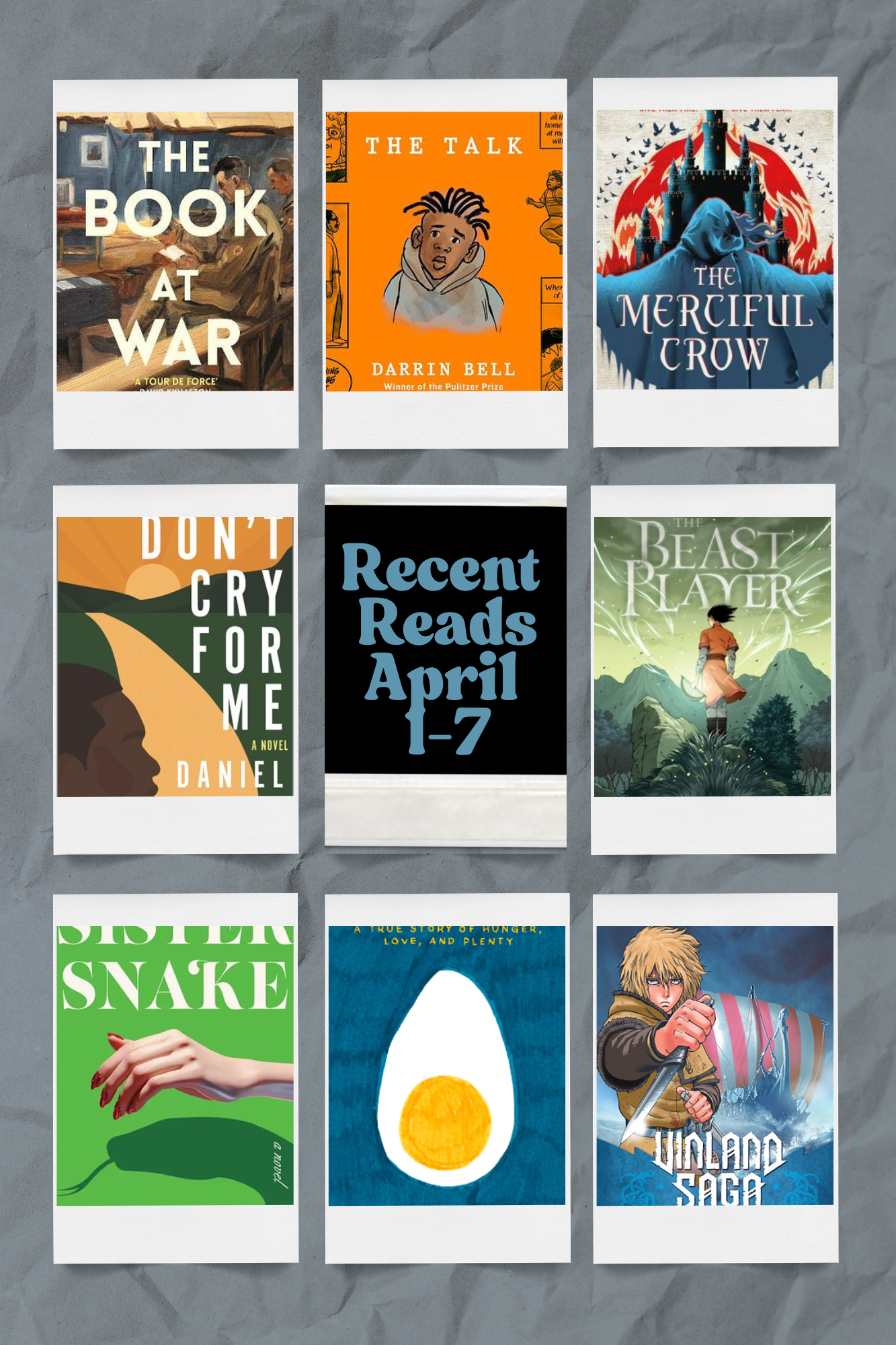
I knew from the title and subtitle that I would enjoy this book and thankfully it lived up to my expectations. I had just one disappointment and that was the narrator. I had to slow my listening speed down significantly because of his lack of distinction between words. I did love his accent though. At first, I wondered a bit because I expected a more expansive timeline when it came to the written word and conflict. When I realized
that the author focused primarily on WWII, secondarily on WWI, and then occasionally on other historical conflicts with the main organization being topical as in types of documents, everything fell into place. The author clearly did copious research and delivered an excellent piece. I definitely recommend this although it is not for everyone.
Wow.
I knew going into this read that this graphic memoir would pack a punch. Darrin Bell does not hold back. He shows with every page, every panel, just why he clearly deserves that Pulitzer Prize. In this graphic memoir, Bell talks about many difficult and very real topics that he encountered growing up as a bright, biracial boy with a black

father who did not know how to talk to him about the injustices they faced and who ended up leaving the family. This memoir covers a wide swath of time and many hard hitting topics. I highly recommend it.

I picked this one up after DNFing “The Bone Ships.” It’s always a relief to find a book that works on the heels of one that does not. Owens creates a complex world with an unjust caste system that unspools in a way that keeps the reader engaged. I really appreciated how Owens developed the complex main character who struggles to adapt to the new mantle of leadership thrust upon her as well as the drive to fulfill her oat
to the potential future leader of the kingdom that ruthlessly oppresses her people simply for the fact that they exist. Owens also adds depth to the side characters which helps the reader fully immerse in the story. I look forward to reading the sequel as well as her recently concluded trilogy.
The abrupt ending confused my thoughts a little on this book but I will get to that in a moment. I tend to not prefer books that cover large swaths of time, years or longer, in the life of a singular character. However, certain books surprise me and work really well. This book is one of them. I also appreciate the skill of the translator with the book, originally published in Japanese. The author created a beautiful world with a nuanced

conflict over complex magical creatures and their care. I do, however, wonder about the ending of the book because while the plot reached somewhat of a conclusion, the events end right in the middle of a rescue of sort. I will continue on however because I am sufficiently intrigued.

This book, narrated by the author, fascinated me. Black told the story of his strained relationship with his father through this fictionalized memoir with his father telling the story. The man was a complex, highly flawed person who openly talked about his issues, like how he treated his wife and how he handled his son’s sexuality. As this man faces his impending death, he has to grapple with where his choices have taken him. It’s a difficult but worthy read.
If this book had not come in a book box, the synopsis would not have intrigued me enough to pick the book up. I do not regret this read but I could have done without it. This narrative tells the story of two sisters, chosen sisters, who originated as mythical beings, first embodying snakes. Over a long expanse of time the women decide to transform into humans though how they gained this ability never gets truly explained.

They then exist as beings who can transform between both forms with a somehow rather specific set of rules. A few events come to a head which change the sisters’ existence once again and form the bulk of the narrative. The end comes and then the reader wonders why these events have importance since, after all, the main characters are immortal creatures and that does not change.

While I always appreciate the ability to read someone else’s story – it takes so much to share vulnerable parts of themselves – some memoirs work better than others. Reichert, in this book, tells the story both of her own life and also of her father, a Holocaust survivor. Through this narrative, Reichert shows the insidious nature of generational trauma. The way that Reichert structured the narrative made the through line a bit too
confusing. Overall though, I will always recommend the reading of memoirs, of reading others’ stories.
I loved this first omnibus. This is definitely a manga that I will continue. This initial volume begins the story of a character driven to avenge the death of his father, a former Viking who attempted to keep his family and village out of war. That sentence does not come close to touching the complexity and nuance of this opening volume. With how much good I have heard about the series as a whole as well as how much I loved this initial volume, I will continue as soon as possible.

